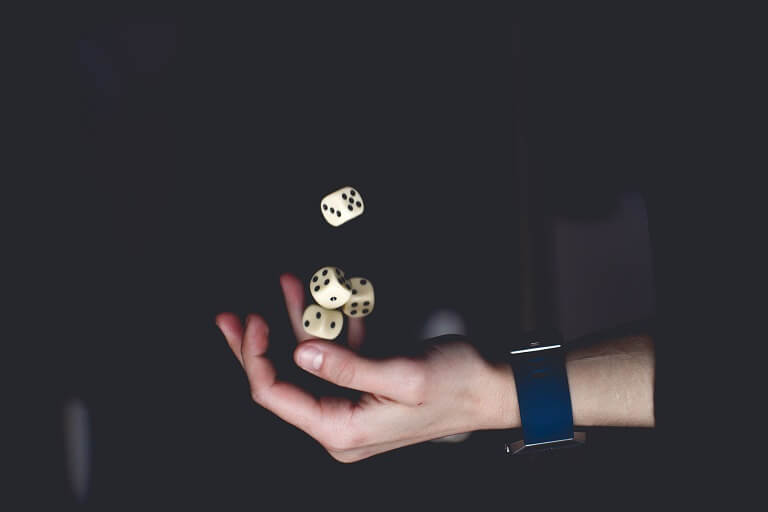“I Created a Game. Can I Protect it with a Patent?”

“Don’t get upset – it’s just a game.”
Many of us have heard those words at least once in life, whether they came from a parent who comforted us when we lost our first game of Candy Land®, or from a spouse who couldn’t understand why we were gutted by our favorite team losing the play-offs.
Games are not the most important things in life, but they certainly have their value. If they didn’t, would they have stuck around for so long?
As early as 5,000 years ago, the Assyrians invented a board game called “The royal game of Ur.”
The earliest card game is believed to have been invented in 9th century China, known as the “leaf game.”
Sports go waaaaay back, with French cave paintings depicting wrestling dated from over 15,000 years ago. When it comes to ball sports, some regard the first to be “Pitz”, played by the Mayans around 2500 BCE.
Sports and games can promote camaraderie, challenge us to push past our perceived mental and physical limits, and provide relaxation or a method of blowing off steam.
It’s no wonder that the creative human race still finds inventing games irresistible.
Can Sports and Games Be Patented?
You might have designed your own board game, card game, or athletic game, and maybe you’re wondering if it can be patented.
If you have aspirations to sell or license your game, a patent would protect it from being made or sold by others without your permission.
The short answer is: yes. Games and sports can be patented. However, in order to be eligible for a patent, any invention must be:
- New (you invented it; it doesn’t already exist)
- Non-obvious (your invention would not be obvious to someone who works in the industry related to your invention, or the general public)
- Useful (your invention has some use; it does what you say it does).
If your sport or game meets these three requirements, you may be able to obtain a design patent, a utility patent, or both.
Understanding Design Patents vs. Utility Patents
The United States Patent and Trademark Office (USPTO) offers two types of patents that apply to games: design patents and utility patents.
Before you apply for a patent for your new sport or game, it’s important to understand the difference between these two varieties of patents so you can determine if your invention is eligible for just one type, or both.
Design Patents: They’re So Vain
When you obtain a design patent on your invention, what’s protected is the way your invention looks.
For example, imagine that you invented a game that requires each player to turn a crank which moves a corresponding neon-hued plastic camel down a model racetrack. The person able to turn their crank with the fastest, most consistent speed will win, because their camel will make it to the finish line first.
You plan on commercializing this game, and you don’t want a competing toy company creating a knock-off game that also uses neon-bright plastic camels. It would look too much like yours, and consumers might get the games confused. That could damage your brand and cut into your revenue.
You might apply for a design patent on your plastic camels, and that could shut down any camel copycats.
Utility Patents: They’re Always Doing Something
When you obtain a utility patent on your invention, what’s protected is the way your invention works.
Going back to the example of our camel racing game, let’s assume you invented the mechanism that drives the camel forward when its corresponding wheel crank is turned. Nothing like it has ever been used in a game before.
You might apply for a utility patent on that mechanism. If the patent is issued, it could be used to block someone from recreating your mechanism in their own game.
If your game is on the market and selling well, and a competing toy company wants to use your mechanism in one of their products, your invention could put even more money in your pocket. You could agree to license the mechanism to the competing toy company for royalty payments. However, if they tried to use your invention without a licensing agreement, you could sue them for infringing on your patent.
Your Game Must Have Novelty to be Patentable
It’s important to remember that the whole point of a patent is to protect your original invention, and prevent others from using, making, or profiting from it.
Therefore, you cannot patent something that already exists. That would not be original or new. It would not have “novelty.”
However, your game doesn’t have to be completely new to be eligible for a patent. It just has to have something new about it. That “something new” is the part you can protect with a patent.
In fact, many patents are just improvements on existing inventions.
“How Can I Get a Patent on My New Sport or Game?”
If you want to patent a board game, card game, computer game, or even a new kind of sport, your first step is to find out if other games or sports exist that may be similar to yours.
To do that, have a patent search done. Go to a reputable law firm to get your search.
Be aware that that there are companies that sell patent searches to inventors like you, but the inventors usually walk away unhappy. This is because when the company delivers search results, they don’t deliver any kind of interpretation or consultation. What the inventor gets are simply raw copies of patents that probably won’t make much sense to anyone but a patent attorney, or perhaps an engineer.
The Patent Professor® is a patent law firm that specializes in working with individual inventors and small startups, and they make sure every client who orders a patent search understands what the results actually mean.
Patent search results can tell you if your invented game or sport is eligible for a design or utility patent (or both), and they can help steer the way your patent attorney writes your patent, so your invention will enjoy maximum protection.
In fact, at The Patent Professor®, every patent search is followed by a consultation between the inventor and a former examiner from the USPTO.
When you file a patent application at the USPTO, that application is examined by an assigned examiner. The examiner is the individual who decides whether your invention will be granted a patent.
The Patent Professor® employs three former USPTO examiners who explain patent search results to clients. The former examiner assigned to your search will make sure that you understand your options, answer all of your questions, and recommend next steps. Their input is incredibly valuable.
Sports and games are timeless. They’ve been a part of the human experience for thousands of years, and they’re not going away any time soon. If you invented a new sport or any kind of game, you’re carrying on an ages-old tradition of creativity and fun. That’s not a bad thing to have as part of your legacy!
Got a moment? Get your questions answered about patenting games and sports from legal professionals, without the pain of a sales pitch. Pick up your phone and call 1-877-PAT-PROF (1-877-728-7763) or shoot an email to NewIdea@ThePatentProfessor.com. By reaching out for a consultation, you won’t be under any obligation to do business with our law firm.
The information provided on this website does not, and is not intended to, constitute legal advice; instead, all information, content, and materials available on this site are for general informational purposes only. Information on this website may not constitute the most up-to-date legal or other information. This website contains links to other third-party websites. Such links are only for the convenience of the reader, user or browser; the ABA and its members do not recommend or endorse the contents of the third-party sites.

